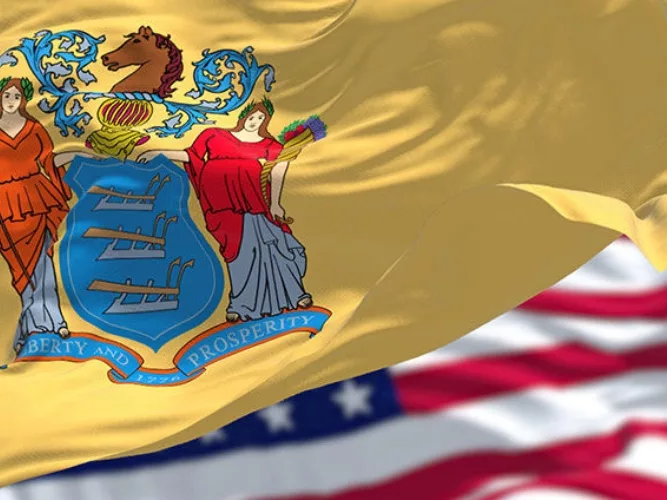Plumbing industry leaders came together at the New Jersey State House for the second Plumbing Industry Day, an annual event organized to provide expert insights to legislators and staff on policies that impact public health, water quality, and economic sustainability.
During meetings with legislators and legislative staff, the group focused on:
- Support for New Jersey’s National Standard Plumbing Code
- Highlighting the importance of a well-trained and regulated industry to ensure safe and reliable plumbing systems throughout the state
- Discussing laws and regulations as they pertain to critical items such as backflow prevention, control of Legionella, and abatement of such contaminants as lead, microplastics and PFAS
- Support for water conservation efforts
IAPMO was represented by GP Russ Chaney, former IAPMO CEO; Chris DeMarco, regional manager of Field Services; Jim Scarborough, senior director of Government Relations; and Carol Katz, Adam Guziejewski and Laura Gunn of Katz Government Affairs. Representatives from UA Locals 9, 24 and 322; New Jersey Association of Plumbing, Heating and Cooling Contractors; Mechanical Contractors Association of New Jersey; New Jersey State League of Master Plumbers; New Jersey State Plumbing Inspectors Association; South Jersey Mechanical Contractors Association; and New Jersey Association of Pipe Trades were also in attendance as representation from the entire plumbing industry in the state.
Plumbing Industry Days are part of the annual March4Water celebration, which unites policymakers, industry leaders, and communities to address the pressing issues impacting water systems, from aging infrastructure to the increasing strain placed on plumbing systems by such climate challenges as droughts, hurricanes, and severe weather events.
“Safe and reliable water systems don’t happen by chance — they require skilled plumbing professionals governed by effective codes and standards,” DeMarco said. “As New Jersey faces increasing demands on its water infrastructure, it is essential that we support policies that protect public health, promote economic opportunity, and ensure access to clean, safe water.”
The plumbing industry in New Jersey, including manufacturing, wholesale, and retail has a combined direct economic impact of more than $964 million. Additionally, manufacturing in our industry supports more than 4,700 jobs, paying more than $316 million in wages and helps generate more than $416 million in tax revenue.




